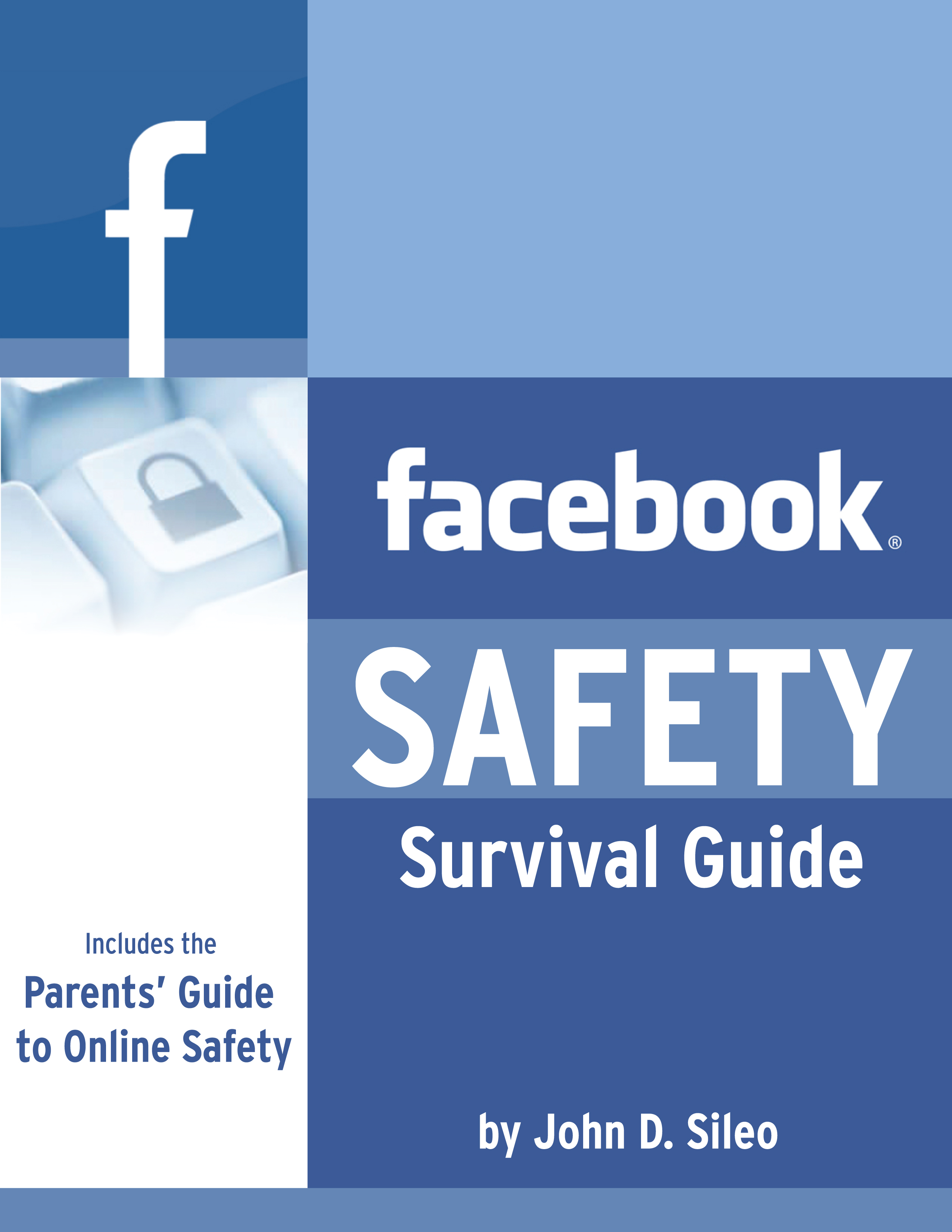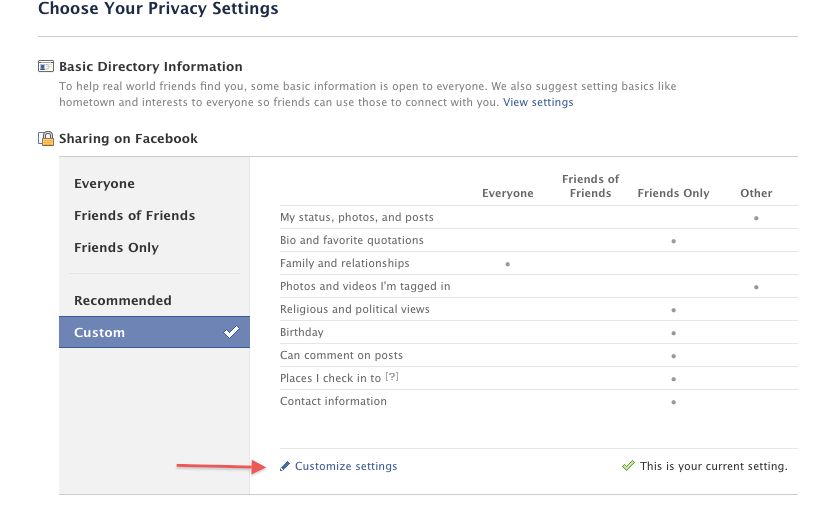Home | You searched for "facebook-safety-guide"
Latest Posts
A report was recently published claiming that nearly 100,000 Facebook apps have been leaking access codes belonging to millions of users’ profiles. Symantec released the report and said that an app security flaw may have given apps and other third parties access to users’ profiles. Facebook maintains that they have no evidence of this occurring.
In their report, Symantec wrote:
We estimate that as of April 2011, close to 100,000 applications were enabling this leakage. We estimate that over the years, hundreds of thousands of applications may have inadvertently leaked millions of access tokens to third parties.
These “access tokens” help apps interact with your profile.They are most often used to post updates from the application to your wall. When you add the applications to your profile you, as the Facebook user, is giving the apps access to your information by accepting their conditions. According to the investigation, these tokens were included in URLs sent to the application host and were then sent to advertisers and analytics platforms. If the recipient recognized the codes (meaning they have to be qualified to read and write HTML code), they could gain access to the user’s wall’s and profile.
Posted in Online Privacy by Identity Theft Speaker John Sileo.
Tags: "Facebook Speaker", Facebook, Facebook apps, Facebook Safety, Facebook Security, John Sileo, Online/Social Media Privacy, Social Media Security, social networking, Social Networking Expert, Social Networking Speaker
With the meteoric rise in cyber-bullying, parents are desperate to find a way to shield their children. Unfortunately, most parents are far behind their child’s proficiency with technology. Many don’t text, aren’t on Facebook, and are oblivious to the many ways in which kids can taunt each other with technological ease. Although children may be quick and nimble with technology, they lack the maturity to understand its consequences.
A recent article in the New York Times on Digital Bullying (read the MSN version here) addressed these very issues and gave true and heart-wrenching accounts of how parents were left helpless at the hands of their children’s online bullies. “I’m not seeing signs that parents are getting more savvy with technology,” said Russell A. Sabella, former president of the American School Counselor Association. “They’re not taking the time and effort to educate themselves, and as a result, they’ve made it another responsibility for schools.”
Posted in Cyber Data Security, Identity Theft Prevention, Online Privacy by Identity Theft Speaker John Sileo.
Tags: Bully, Bullying, Cyber, Cyber Bully, Cyber Bullying, Cyber Crime, Cyberbully, Cyberbullying, Digital, Facebook, Facebook Safety, identity theft expert, John Sileo, Online Bullying, online privacy, Online Safety, social networking safety, Social Networking Speaker, Teen Safety
Yahoo.com just published the following article that every Facebook user should read. I recommend you follow each of these suggestions, and if you want to learn more, read my Facebook Safety Survival Guide.
6 Things You Should Never Reveal on Facebook
by Kathy Kristof
 The whole social networking phenomenon has millions of Americans sharing their photos, favorite songs and details about their class reunions on Facebook, MySpace, Twitter and dozens of similar sites. But there are a handful of personal details that you should never say if you don’t want criminals — cyber or otherwise — to rob you blind, according to Beth Givens, executive director of the Privacy Rights Clearing House.
The whole social networking phenomenon has millions of Americans sharing their photos, favorite songs and details about their class reunions on Facebook, MySpace, Twitter and dozens of similar sites. But there are a handful of personal details that you should never say if you don’t want criminals — cyber or otherwise — to rob you blind, according to Beth Givens, executive director of the Privacy Rights Clearing House.
The folks at Insure.com also say that ill-advised Facebook postings increasingly can get your insurance canceled or cause you to pay dramatically more for everything from auto to life insurance coverage. By now almost everybody knows that those drunken party photos could cost you a job, too.
Posted in Identity Theft Prevention, Online Privacy by Identity Theft Speaker John Sileo.
Tags: Facebook, Facebook Safety, identity theft expert, Identity Theft Prevention, John Sileo, social networking, Social Networking Speaker, Yahoo.com
Direct messages sent through Twitter can be easily exposed, thanks to a loophole in Twitter’s API, according to Gary-Adam Shannon at Search Engine Watch Reports. When a user logs into another site using their Twitter user name and password, the site can gain access to the private messages, says Shannon. He goes into technical detail, but essentially it’s just a small hack.
Shannon recommends you don’t ever log in to a site (other than Twitter.com, obviously) using your Twitter user name and password. Another writer at Search Engine Watch recommends that users erase their Direct Messages after viewing them. There has been no comment from Twitter, but we hope they are looking into the issue now that the problem has been made public.
Read more…
Posted in Identity Theft Prevention, Online Privacy by Identity Theft Speaker John Sileo.
Tags: Direct Messages, identity theft expert, John Sileo, Online/Social Media Privacy, Security, Social Media Privacy, social networking, twitter, Twitter Loophole, twitter privacy, Twitter Safety, Twitter Security
Students heading to college and young adults living away from their parents’ home for the first time are particularly vulnerable to Identity Theft. In a 2010 survey, Javelin Strategy and Research found that young adults, aged 18-24, take the longest to detect identity theft – 132 days on average – when compared to other age groups.
College-bound students should take the following steps to fight identity theft:
1. School mailboxes can be easily tampered with and are not always safe. Instead of having sensitive (bank, legal, personal) documents sent to your apartment or dorm room, have them sent to a permanent address (your parents’ home or the post office) or sent requiring your signature.
2. Invest in a fire-proof lock box to store all your important documents. This can be vital when you are sharing a living space and can’t control everyone that comes and goes. You should lock up your Social Security card, passport and bank and credit card statements. Shred any important financial documents that come in the mail and never leave any sensitive mail lying out.
Posted in Identity Theft Prevention by Identity Theft Speaker John Sileo.
Tags: back to school, College Student, credit reports, Facebook, identity theft expert, Identity Theft Prevention, John Sileo, Student, Student Identity Theft
Last week Facebook introduced a new location tracking application called Facebook Places. This gives users the ability to check in with Facebook from their mobile device and update their friends (and even tag their friends) on where they are. What many Facebook users don’t realize is that this tool is currently activated by default, and in order to turn it off, users have to go in and adjust their privacy settings. Until you do that, your friends can check you in to different locations (and you may not even be there!).
Here is the step by step process to disable Facebook Places:
1. Log into your Facebook account, and at the top right drop down menu under Account click Privacy Settings.Once you are in Privacy Settings you will see this screen:
2. Click Custom (if that isn’t your selection already) and then click below 0n Customize Settings.
Posted in Identity Theft Prevention, Online Privacy by Identity Theft Speaker John Sileo.
Tags: facbook, Facebook, Facebook Places, facebook privacy, Facebook Safety, Identity Theft Prevention, Identity Theft Speaker, John Sileo, social networking, Social Networking Expert, Turn Off Facebook Places

Facebook has the Population of the Third Largest Country
Wednesday, July 21, 2010 marked a big day for Facebook. CEO and founder Mark Zuckerberg announced in a blog post that the social networking website hit over 500 million users in only 6 years.
If you take a look at the worlds largest countries in terms of population (as of today according to Wikipedia) you find that China is #1 with 1,339,130,000, India is #2 with 1,184,513,000 and #3 is the United States with only 309,944,000. This would mean that if Facebook were a real country with their population of 500,000,000, then it would clearly surpass the USA for the #3 ranking.
Posted in Identity Theft Prevention by Identity Theft Speaker John Sileo.
Tags: facbook, Facebook, facebook privacy, Facebook Safety, Identity Theft Prevention, Identity Theft Speaker, John Sileo, Mark Zuckerberg, social networking, Social Networking Expert
According to a recent Yahoo! article, Facebook has created a new “Panic Button” for London users to help protect children on the social networking site. This new function gives the youngsters the ability to easily report a problem or suspicious activity to the Child Exploitation and Online Protection Centre (CEOP) and Facebook.
The Panic Button will automatically appear on the homepage of users between the ages of 13 and 18 years old. Recently Facebook has been scrutinized because of their relaxed privacy controls and lack of protection for all users, including children. This marks another effort by Facebook to attempt to calm users concerns and team up with other organizations to offer protection to younger participants. In the US, Facebook is teaming up with the Parent Teacher Association to help keep children informed and safe while using the website.
Posted in Identity Theft Prevention, Online Privacy by Identity Theft Speaker John Sileo.
Tags: children online, facbook, Facebook, facebook privacy, identity theft expert, Identity Theft Speaker, John Sileo, Online Safety, Yahoo!
A new article in PC world discusses why the privacy settings on Facebook don’t matter – it instead blames the user for their own data breach. It recommends that those on Facebook should use their common sense and think in the long term. By controlling what you share and only sharing what is responsible Facebook is no longer in charge of your privacy.
 Why Facebook Privacy Settings Don’t Matter
Why Facebook Privacy Settings Don’t Matter
John C. Dvorak – I find it endlessly amusing how so many articles are written about Facebook and its cavalier lack of concern over privacy issues (case in point: Read Dan Costa’s column). A large community is up in arms over the fact that Facebook consistently changes the way it operates and constantly resets the privacy settings of the users to nil, as in NO PRIVACY.
Posted in Identity Theft Prevention, Online Privacy by Identity Theft Speaker John Sileo.
Tags: facbook, Facebook, facebook privacy, Facebook Safety, Identity Theft Speaker, John Sileo, Privacy Settings, Social Networking Expert



















